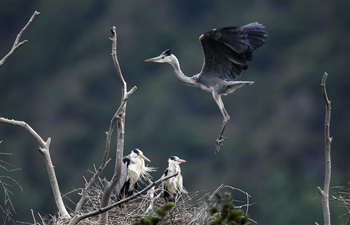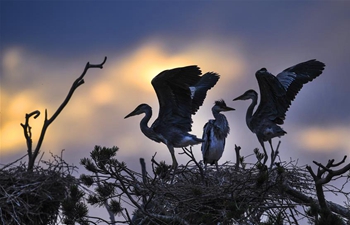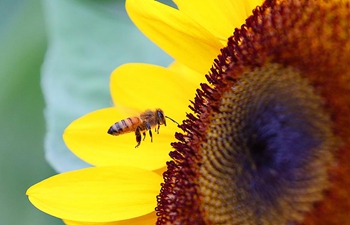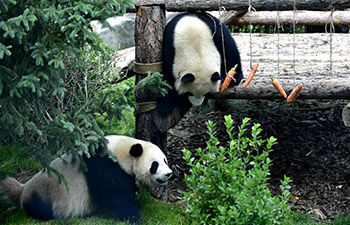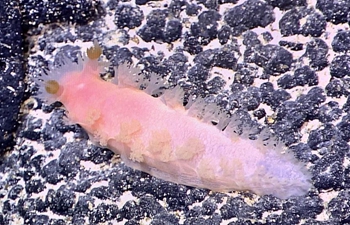NAIROBI, June 19 (Xinhua) -- Large-scale application of pesticides by commercial farmers in Africa has fueled poisoning of the continent's iconic wildlife species, experts said on Wednesday at an organic agriculture conference underway in Nairobi.
The experts and campaigners said that synthetic herbicides that are widely applied on food crops have found their way into wildlife habitats across the Sub-Saharan African region.
"Majority of pesticides used on African farms have been responsible for the poisoning crisis affecting wildlife species mainly vultures, carnivores and even herbivores like elephants," said Darcy Ogada, assistant director of African programs at international conservation group Peregrine Fund.
She said that haphazard use of pesticides on farms adjacent to major wildlife sanctuaries in Africa has escalated death of iconic species through poisoning.
"Farm workers who are uninformed and inadequately trained to handle pesticides have somehow fueled this poisoning of wildlife. We need to create awareness on the dangers that pesticides pose to wildlife to local farmers," said Ogada.
She said that human wildlife conflict has fuelled poisoning of wild animals as aggrieved communities use toxic pesticides to kill carnivores preying on their herd.
"Other wildlife poisoning hotspots include rice schemes that attract bird species like pigeons and ducks," said Ogada, adding that illegal trade in animal products has also escalated wildlife poisoning in West Africa.
She proposed stringent regulations on pesticide distribution and use, investments in modern laboratories to test toxicity level of herbicides as well as public education targeting farmers in order to minimize wildlife poisoning.
Martin Odino, a project manager at Peregrine Fund said that pesticides residue that has accumulated in waterways, soils and protected areas is to blame for poisoning of African wildlife that are part of the continent's heritage.
"Crop farming that is on the rise to help feed the continent's population has impacted negatively on wildlife due to over-use of pesticides," said Odino.
He said that training of farmers on appropriate application of pesticides is key to reducing poisoning of wildlife.



